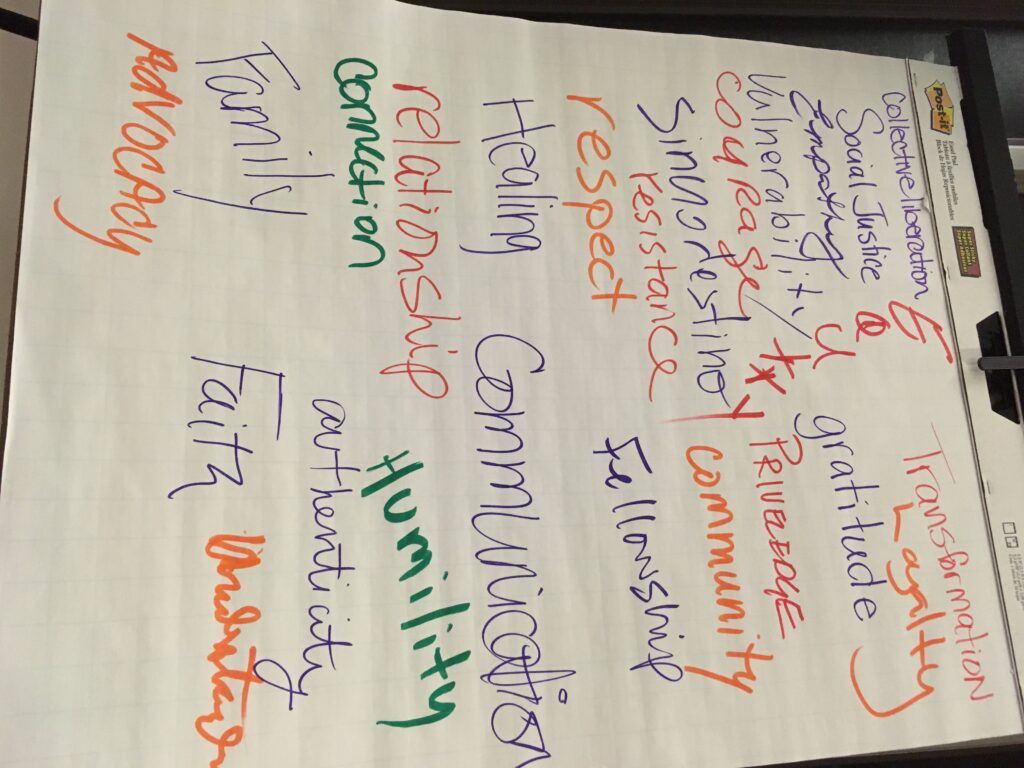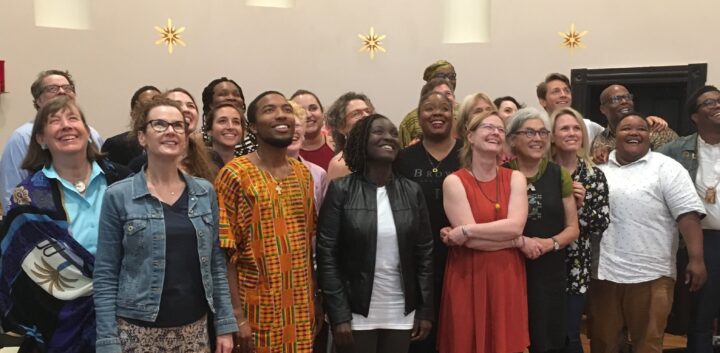My recent blog, “No healing without truth,” has sparked some challenging conversations. A respected African American colleague, Rev. Paige Chargois, while agreeing wholeheartedly on the need for truth, writes, “Black folks have not been avoiding the truth. Quite the contrary! Black folks have been living that, writing that, teaching that, even adjudicating that for centuries!” She says that the real need is for white Americans to “simply yet profoundly ‘find’ their humanity rather than just choosing to exist on the surface of it.”
She is right. If you refuse to acknowledge the humanity of another person or group you can’t fully recognize your own. You can’t live under the tyranny of a lie for centuries without suppressing something precious in your own soul. We have all been wounded, consciously and unconsciously, by the false narrative of a racial hierarchy.
I can only speak personally as a white American of British origin who is painfully aware of how colonialism has impacted the world, and of Britain’s leading role in the transatlantic slave trade. I also know that white Americans in the North and South benefited from the slave economy. The 19th century westward expansion included generous land grants to white settlers; the post-war GI bill effectively discriminated against black veterans, as did redlining and mortgage policies that enabled white families to build wealth.
It was hugely important that, while calling for healing and unity in his inaugural address, Biden named overcoming white supremacy as an essential task. “A cry of racial justice some 400 years in the making moves us.”
Racism is not the only cause of the deep polarization we face today. In the aftermath of Trump’s 2016 election victory, I wrote that liberals, particularly the college-educated elite, must share blame for the deep polarization. They failed to foresee the political shockwave and have virtually no understanding of the worldview of many in the American heartland. Liberals have often been guilty of bigotry against conservative religion and against rural and poor whites. Conservatives are not wrong when they resist what they see as a decline in moral values and family life and the crudeness of our entertainment industry.
Many white Americans feel left behind, disrespected, and unheard; and there are many more poor whites than poor blacks. We should remember that Lyndon Johnson’s “war on poverty” was directed at regions such as Appalachia. But today, as former senator Bill Bradley writes in his memoirs, “Racial thinking obstructs America from seeing how to reduce poverty, because many in the white majority view blacks as undeserving or unwilling to work. But to refuse more resources to fight poverty because you don’t want to help blacks actually hurts more whites than blacks …”

Blame and accusations will not bring the healing we need. My friend Rev. Ben Campbell in Richmond wrote me a few months ago, “White guilt is the biggest barrier to white racial learning.”
We all have work to do regardless of our race, ethnicity, religion, or economic class. I am inspired by the challenge of Bishop Michael Curry to recommit to the “hard work of redemption and reconciliation, starting with honesty about ourselves and our complicity with the past.”
In his inaugural address, President Biden stated the task before the country. “Much to repair. Much to restore. Much to heal. Much to build, and much to gain.”
We need generosity of heart to welcome and listen to those who are frustrated, hurt and angry. We need to hear each other’s stories. We are all imprisoned in different ways. And we need each other’s support to break the chains. recognizing that we are all on a learning journey.
